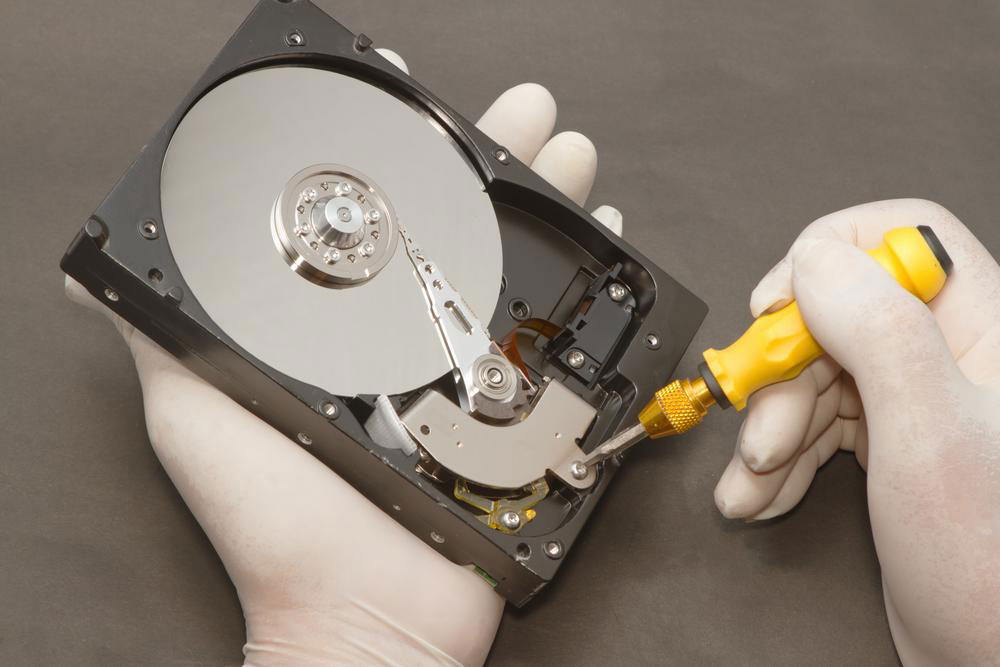Dispelling Myths About Laptops: What You Need to Know for Smarter Technology Use
This comprehensive article explores and debunks common myths about laptops, covering safety concerns, performance myths, and data security misconceptions. It provides factual insights supported by scientific research, helping users make informed decisions and maximize their device's potential. Whether you're worried about health risks or choosing the right processor, understanding the truth about laptops is key to smarter technology use.

Dispelling Myths About Laptops: What You Need to Know for Smarter Technology Use
In today's digital age, laptops have become indispensable tools for work, education, entertainment, and communication. Despite their widespread use and advances in technology, several misconceptions about laptops persist among users worldwide. These myths often lead to unnecessary concerns or poor purchasing decisions, hampering users from fully harnessing the benefits of these versatile devices. Understanding the reality behind these common myths is crucial for making informed choices and optimizing your digital experience.
Many people harbor false beliefs about the safety and functionality of laptops. As technology evolves rapidly, misinformation can spread quickly, sometimes originating from outdated science, anecdotal reports, or misconceptions about electromagnetic fields and heat production. This article aims to debunk some of the most prevalent myths surrounding laptops, providing factual information supported by scientific research and industry standards. Whether you are a student, a professional, or simply a tech enthusiast, knowing the truth about laptops can help you avoid unnecessary fears and use these devices more effectively.
Myth 1: Using a Laptop on Your Lap Can Harm Your Reproductive Health
This is one of the most widespread myths about laptops. The misconception is that prolonged use of a laptop directly on the lap can generate heat that might impair sperm production or cause reproductive health issues. This concern is often linked to the idea that laptops emit significant heat, which may have adverse effects if placed close to sensitive body parts. However, scientific studies and industry data clearly show that modern laptops are designed with proper ventilation to prevent overheating, and the heat emitted during normal use is minimal and unlikely to cause harm.
Research from known manufacturers such as Fujitsu indicates that laptops today rarely reach temperatures that could impact health when used on the lap. The short-term exposure to the slight warmth produced by the device is harmless. The perceived danger often stems from the misconception that all laptops run at high temperatures continuously, but this is not representative of typical usage. Implementing simple precautions like using a lap desk or avoiding extended periods of continuous use can effectively mitigate any minor discomfort.
Myth 2: Wi-Fi Signals Pose Significant Health Risks
Another common myth involves Wi-Fi signals emitted by laptops and other wireless devices. Many users believe that exposure to Wi-Fi radiation can cause serious health issues, including cancer or neurological problems. While electromagnetic radiation can be a concern with high-powered devices, the levels emitted by Wi-Fi routers and laptops are well below the safety thresholds established by international health organizations like the World Health Organization (WHO).
Extensive research has found no credible scientific evidence linking typical Wi-Fi use to adverse health effects. Regulatory agencies worldwide have tested and set safety standards for electromagnetic emissions, ensuring that normal use remains within safe limits. If you want to reduce any residual exposure, simple measures such as turning off Wi-Fi when not in use or maintaining distance from the device can help, but overall, Wi-Fi is safe for everyday use.
Myth 3: Magnets Can Erase Data from Modern Laptops
Many individuals associate magnets with the ability to erase data stored on electronic devices, especially from the era of floppy disks and early magnetic storage media. This belief persists even in the age of solid-state drives (SSDs) and modern hard disk drives (HDDs). The truth is that most contemporary laptops are equipped with shielding that prevents magnetic fields from affecting stored data.
While extremely powerful laboratory-grade magnets can theoretically cause data loss or damage to components, such magnets are not part of everyday household items. Standard household magnets, such as fridge magnets or accessories, are far too weak to impact the data stored on your laptop's internal drives. Manufacturers design their products with safeguards against minor magnetic interference, making data corruption from magnets virtually impossible under normal circumstances.
Myth 4: A Quad-Core Processor Is Always Better Than a Dual-Core Processor
This misconception centers on the assumption that a quad-core processor automatically offers superior performance compared to a dual-core processor. While it is true that quad-core CPUs provide more processing power and efficiency, their advantages depend heavily on the tasks being performed. For everyday activities like browsing the internet, streaming videos, managing emails, and writing documents, a dual-core processor typically suffices and offers excellent performance at a lower cost.
Upgrading to a quad-core processor makes sense for users engaged in heavy multitasking, video editing, 3D rendering, or gaming, where multiple cores can work simultaneously to handle complex computations. However, for the majority of routine users, a dual-core processor provides a balanced combination of speed, power efficiency, and affordability. It’s essential to assess your specific needs before opting for the latest high-end processor, instead of assuming that more cores always equate to better performance.
The Importance of Debunking Laptop Myths
Distinguishing fact from fiction regarding laptops is essential for making smarter purchasing decisions, optimizing device use, and maintaining safety. Misinformation can lead to unnecessary anxiety, inappropriate usage practices, or misguided investments. By understanding the realities behind these myths, users can maximize the benefits of their laptops without unnecessary worries.
Modern laptops are intricate yet safe devices designed with user health and data security in mind. They are built to meet strict safety standards, and ongoing technological advancements continue to improve performance, safety, and usability. As consumers, staying informed through credible sources such as industry reports, scientific studies, and manufacturer guidelines can help you make well-informed choices that enhance your digital life.
Whether you're considering a new device purchase, using your existing laptop more effectively, or simply want to dispel common misconceptions, knowledge is power. By debunking these prevalent myths, users can enjoy the full spectrum of benefits that today’s laptops have to offer, empowering themselves with confidence and clarity in the digital age.





